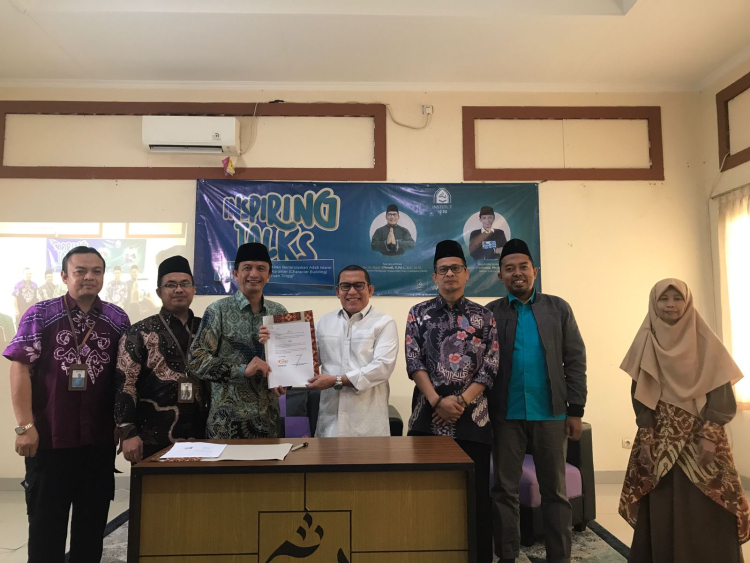SEBI Institute hosted an Inspiring Talks event themed “Realizing an Educational Process Based on Islamic Values as a Pillar for Character Development in Higher Education” on its campus in Depok on Thursday, August 14, 2025. The event featured Dr. H. Rusli Effendi, S.Pd.I., SE., M.Si., Special Advisor to the President of Indonesia for Poverty Alleviation and Food Security, as the keynote speaker.
In his presentation, Dr. Rusli emphasized that true education is not merely the transfer of knowledge but also the formation of character based on Islamic values. Citing the advice of Imam Malik bin Anas, he reminded attendees of the importance of studying ethics before knowledge. He also referred to research by Thomas J. Stanley, Ph.D., which concluded that success is more determined by integrity, discipline, work ethic, and social support than by mere intellectual intelligence.
Furthermore, Dr. Rusli urged students to engage in a “positive intellectual rebellion”—breaking the chains of ignorance while adhering to the values of the Qur'an. Citing Quran Surah Ar-Ra’d verse 11, he encouraged the academic community at SEBI Institute to initiate change within themselves for the advancement of the nation.
Following the Inspiring Talks session, the SEBI Institute signed a Memorandum of Understanding (MoU) with the Indonesian Riau Community Association (PMRI). The signing was conducted by SEBI Institute Rector, Sigit Pramono, Ph.D., and PMRI Chairman, Dr. Rusli Effendi.
“This MoU aims to strengthen the development of human resources in the sharia economy, particularly for the youth from Riau,” said Rector Sigit Pramono, Ph.D., in a release received by Milenianews.com.
He added that the scope of collaboration includes socializing SEBI Institute's education in Riau, selecting prospective students, providing financial support for education, academic and non-academic coaching, leadership capacity development, and empowering alumni to contribute back to their regions. This memorandum of understanding is valid for five years (2025–2030), with funding sourced from both parties and non-binding partners.
“This strategic collaboration is expected to produce graduates who are knowledgeable, ethical, and integrity-driven, while also strengthening the contribution of the youth in regional, national, and community development,” he stated.
